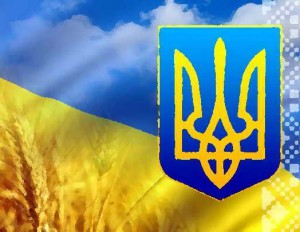 For a long time, the dominant norm of political thinking and practice had been the ideology of McKiawellism, in which politics and morality were viewed as inconsistent.
For a long time, the dominant norm of political thinking and practice had been the ideology of McKiawellism, in which politics and morality were viewed as inconsistent.
However, in the twentieth century, especially in its second half, this ideology has largely exhausted its potential and moral “justification.” 7 After the policy became public, the people gradually realized their right and obligation to participate directly in it, and the policy gradually returns to its original meaning – in its Aristotelian understanding.
Aristotle “saw in the policy the continuation of ethics, a kind of expanded ethics, ethics in concreto, and at the same time considered ethics as the highest political science.” And from the fifteenth century, from the beginning of the era of humanism, “moral philosophy” has become not only a factor of social reflection, but also an element of the system of education within the socalled human sciences (studia humanitatis).
One of the axioms of democracy states that in democratic societies more depends on peoples’ civil and moral qualities than from rulers and political institutions. For example, Americans who we have to learn something about democracy, see the “four pillars of pluralism”: “freedom of speech, virtue, capitalism, and limited government (which implies a limited power in their powers). We, the Americans, do not like excessive concentration of power.
“However, the last idea has also European roots. Early in the nineteenth century Wilhelm von Humboldt wrote that limiting the volume of state activity is a prerequisite for maintaining a healthy moral spirit in it, but too extensive concern of the state about citizens is causing great harm to the “energy of activity and the moral character of people.” For Ukrainians, it seems that the moral rebirth of society after the most serious long-term moral deformations is not only necessary, but maybe even a key factor. This process does not promise to be easy and fast.
In the United States, the first Code of Ethics for the Government Service appeared in 1958, however, first in the form of a Congressional resolution; and since the late 1970’s. the ethical principles of state life become the subject of rather tight social control and regulation, including the legislative level. It was recognized that the viability and legitimacy of the country’s political system depend to a large extent on how public institutions and senior officials respond to the values and ideals that prevail in society, and their behavior is in accordance with the norms of social morality.
Hence – and attention to ethical codes (these codes of norms defining standards of behavior may have different names) in all branches of power of the western countries. People are known to live a lot in the world of their subjective ideas about life, including their imagination about power, which in a democratic society must strive to improve these ideas, in any case, that there are real grounds for that. Therefore, the moral aspect of the behavior of civil employees is also important from the point of view of public policy.
As early as 1923 P.I. Novgorodtsev foresaw a gigantic complexity of the task of the moral revival of the nation after the collapse of the Bolshevik regime: “A Russian man in the coming years will require heroic ascetic efforts in order to live and act in a country destroyed and laid back several centuries ago. He will have to live not only among the greatest moral desolations of his homeland, but also among the terrible collapse of all its cultural, social and domestic foundations …
Among this total destruction, the shoots of a new life will only break through with great efforts. How many new 8 dark feelings of non-sunken elements will have to appear again! How many new troubles a harsh passion for order and rest will have to bring about! How many difficult stages will have to pass along with the mighty need for economic recovery with its indomitable instincts of acquisition and accumulation!. Over the past 80 years, since these lines have been written, the situation has only worsened.
Although many processes are now accelerating so much that centuries have come down to decades. At a time, Franklin Roosevelt said: “There is much that has been given to one generation, much will be asked from the next one , and the other generation will eventually meet the future.” We met our future and, unlike those who had come before us, kept, and to a lesser extent, still, are holding it in our own hands.
Author L. S.Vorobyova, PhD.
